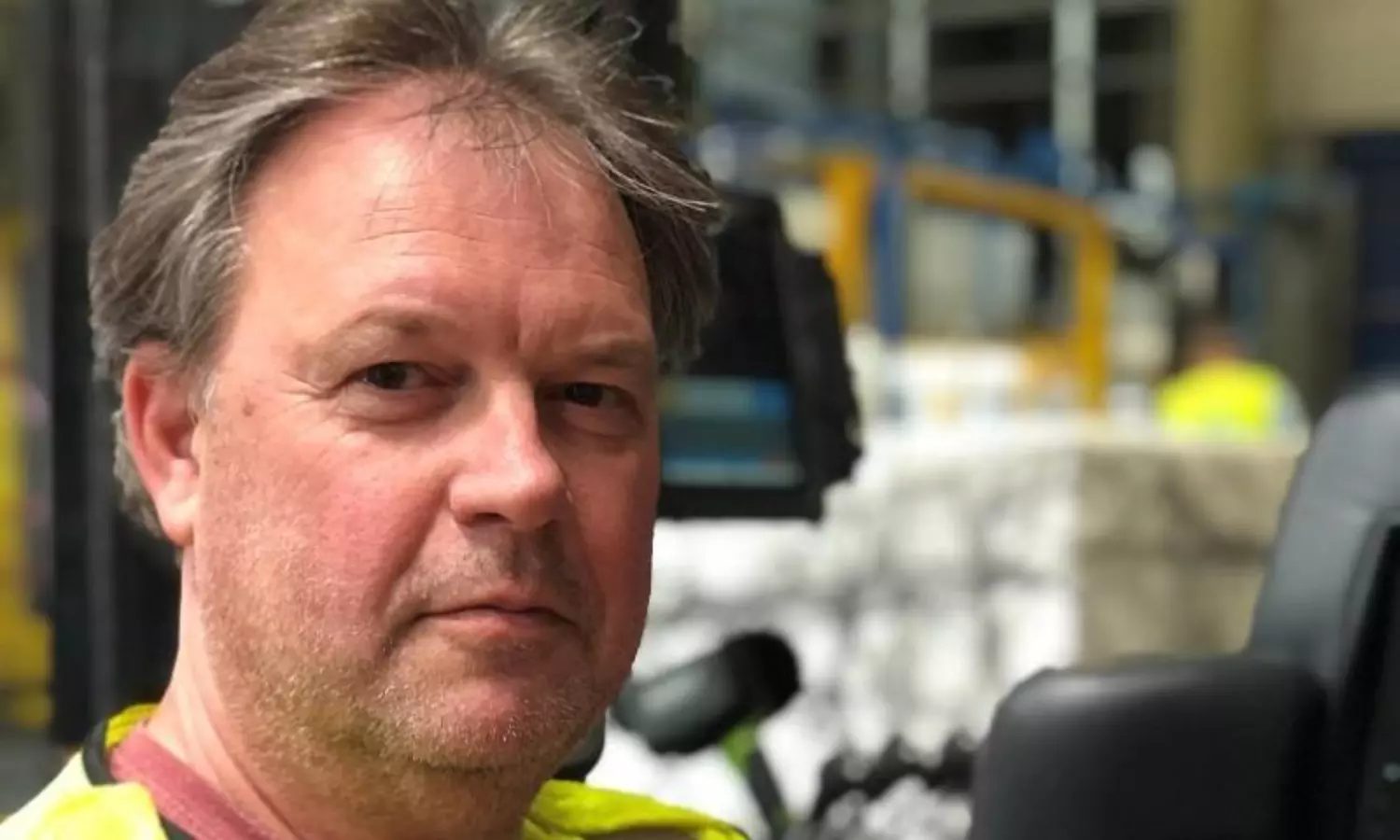'The way forward is a joint approach between the dangerous goods community and the security community'
What is broken and what can be fixed to ensure visibility and safe transit of Lithium battery shipments? Edwin Boon, Cargo Operational Safety Manager & Dangerous Goods Policies at AFKLMP Cargo speaks to us as part of our #SafetoFly series

Edwin Boon, Cargo Operational Safety Manager & Dangerous Goods Policies at AFKLMP Cargo
What steps has Air France KLM Martinair Cargo taken to ensure that there is better visibility and compliance while handling lithium batteries in the recent past? Has Air France KLM Martinair Cargo ever had to terminate your contract or end a working relationship with any of your stakeholders owing to non-compliance in ensuring the transportation of dangerous goods, especially lithium batteries?
Generally speaking, AFKL and its cargo division AFKLMP Cargo are fully adhering to ICAO and IATA regulations. For LB under UN 3480 and 3090 (shipments containing just LB batteries), only our full freighter operation at both Martinair and AF can accept these. AF and KL passenger operations can only accept lithium batteries 'contained in' or 'packed with' equipment (UN 3481 and 3091). Fully regulated shipments, needing a shipper declaration for dangerous goods, already allow some degree of 'visibility' of these shipments.
In fact, these are only not visible when they are mis-declared or hidden from the acceptance staff. In both cases, this concerns a reportable offence. To enable visibility of the LB shipments under Section II (not regulated by means of shipper declaration but only by the formal AWB statement), AFKL already in 2015 had set up a procedure where we also take these shipments (ELI/ELM) into our cargo acceptance process including the use of a company-mandated specific checklist for these shipments throughout our entire network of cargo entry points.
Up and above all of this, we are currently profiling all FWB (Freight Waybill) and FHL messaging to any indication that the shipment might contain LB without the proper booking/AWB requirements such as documentation (DGD), statements, and/or relevant special handling codes. This allows us to target shipments that seem to be booked OK but need further scrutiny because our IT platform recognizes inconsistencies.
As many airlines, AFKLMP has also encountered cases of mis-declared or undeclared DG. All cases are investigated, many times together with relevant authorities, and ultimately communicated to the customer. Yes may be, and has been in the past, in the form of a closure of business with the specific shipper or forwarder until we have connected and communicated in a positive atmosphere, root cause analyses have been done and necessary mitigations to re-occurrence have been established. Unless an actual situation of willful conduct has been detected, it's the aim of AFKLMP to discuss and repair mistakes and prevent the re-occurrence of issues.
How does Air France KLM Martinair Cargo handle instances of poor and unsafe packaging and inaccurate declaration when it comes to lithium batteries shipment by your customers /stakeholders? What are some of the good practices you undertake to secure lithium batteries in cargo?
Instances of poor and/or unsafe packaging as well as mis-declared/undeclared shipments are always intercepted at the cargo acceptance point, but also in the hubs (AMS/CDG) during transit where all our warehouse staff is trained in discovering anomalies of DG shipments that were already accepted at our outstation or trucking network.
Besides that, all process steps from cargo acceptance to aircraft loading are performed by trained staff who are knowledgeable on the requirements for the packing, labeling and documentation on DG. So if for whatever reason a previous checkpoint should fail (or the shipment becomes compromised after this checkpoint, we still have other barriers in place to intervene. Also, all occurrences in this field are shared or reported with the appropriate authorities.
What are the standard operating procedures that the cargo terminal follows while transporting lithium batteries specifically? Have you begun working with or are planning to work with any technologies to ensure better visibility of dangerous goods on the air cargo side?
AFKLMP is constantly searching for ways to use automation and/or IT solutions to all compliance fields where profiling and targeting can be innovated to consistent and failsafe operational use. The earlier mentioned IT platform for this profiling is running on FWB/FHL messaging which basically means that we use XML data to run the computers and do checks. That also means that we can block any shipment that we profile in our system for any further activities by the GHA, including being unable to manifest the concerning shipment on a flight or (administratively) add the shipment to a ULD.
This step is still in Beta testing, but it'll be of great help as we will be able to change our interception process from a live communication with the concerning GHA (phone, mail, telex) to an IT-based intervention. The GHA(Ground Handling Agent) simply cannot move a blocked shipment within their own cargo handling system (IT platform). For DG specifically, it will make our use of the IATA DG Autocheck platform easier in a way that we can send eDGD data through the programme to validate at least the shipment data is what it's supposed to be. This can be done already at the booking stage as soon as we can share the DGD data so in a phase where the shipment is still at the customer's warehouse.
What steps are you taking to ensure the safe and secure transport of lithium batteries under your watch? Are you undertaking any presentations, training sessions, or have held workshops to sensitize your staff to the dangers of mishandling or not sticking to regulations enforced by several authorities on the transportation of dangerous goods like lithium batteries? Do you have a separate team or dedicated staff that looks into this aspect of air cargo? If so, do mention what all the Air France KLM Martinair Cargo has done in this regard in detail.
KLM Cargo is a recurring speaker at many international IATA conferences. We share occurrences and examples of misdeclaration and we basically consider that part of our responsibility to 'educate/inform' the supply chain. We actively participate in meetings, discussions, interviews, etc. to ensure maximum awareness of the industry. Internally we train our staff according to regulations but for staff that are formally 'out of scope' for regulatory DG training, we have awareness training modules. Also, examples of occurrences are shared with our employees via NewApp's, narrow-casting, and other compliance keynotes and bulletins.
What is the volume of dangerous goods including lithium batteries handled by Air France KLM Martinair Cargo in a year or last year to be specific? And of this volume, what would be the share of lithium batteries carried (in percentage/share)?
AFKLMP had carried, prior to the Covi crisis, well over 80,000 DG shipments/year of which over 35% contained LB (Lithium Batteries).
According to you, what would be a way for all of the industry (including cargo terminal operators, shippers, freight forwarders, and airlines) to ensure there is greater compliance to safety regulations when it comes to transporting lithium battery shipments so that there are fewer accidents owing to non-compliance taking place in the future? Have you attended any recent sessions or meet-ups in this regard? If so, do mention the same?
For multiple past occurrences, we initiated, where possible, a cooperation with local security screening agencies. This was done because in our opinion the security screening by a scanner is quite able to disclose LB in a shipment while imaging the shipment content during screening. Also, it seems well possible to train scanner operators on additional DG knowledge specific for this purpose.
It has been proved that it's possible to distinguish batteries 'contained in/packed with' shipments from shipments containing just batteries, specifically when performing screening on 'piece level'. Also, shipments that are said not to contain LB but actually when they do, can be well distinguished by image. Further, we see now the '5th protocol' security scanners come into service that contain a range of possibilities for recognizing specific types of DG. In our opinion, the way forward is a joint approach between the dangerous goods community and the security community in order to ensure that shipment details that point to any inconsistency with documentation or data are being captured for close survey or investigation.
#SafetoFly #LithiumSafe #SafeLithiumshipments


